Different steps are involved to get admission in the course Master of Veterinary Science in Animal Biochemistry, It's essential to prepare thoroughly for the entrance exam of your choice, as your performance in these exams plays a significant role in securing admission.i
Admission Process: M.V.Sc in Animal Biochemistry
A Master of Veterinary Science (M.V.Sc.) in Animal Biochemistry is a specialized postgraduate program that focuses on the study of biochemical processes and metabolism in animals. This field is crucial for understanding the molecular and cellular mechanisms underlying various diseases, nutrition, and overall animal health. To get admission to a Master of Veterinary Science (MVSc) program in Animal Biochemistry in India, you typically need to follow these steps:
Eligibility Requirements: Ensure you meet the eligibility criteria, which usually include having a Bachelor's degree in Veterinary Science (BVSc) from a recognized institution. Specific eligibility criteria may vary by university, so check with the institutions you're interested in.
Entrance Exams: Most universities and colleges in India require candidates to appear for entrance exams. The most common entrance exams for MVSc programs include the Indian Council of Agricultural Research (ICAR) All India Entrance Examination for Admission (AIEEA-PG) or state-level veterinary entrance exams. You must prepare for and perform well in these exams.
Application Process: After the entrance exam results are announced, universities will invite applications for the MVSc program. You will need to fill out application forms and submit the required documents, including your exam scores, academic records, and other relevant documents.
Counseling or Interview: Some institutions may conduct counseling sessions or interviews to assess candidates' suitability for the program. Be prepared for these if required.
Merit List: Based on the entrance exam scores and other criteria, universities will prepare a merit list. Admission is usually granted based on this merit list.
Seat Allotment: If you are selected, you will be allotted a seat in the program. You will receive an admission offer from the university.
Document Verification: You will be required to visit the university to complete the document verification process. Make sure to carry all necessary original documents.
Fee Payment: Pay the required course fees within the stipulated time to confirm your admission.
Orientation: Attend the orientation program organized by the university to familiarize yourself with the campus and academic requirements.
Commence Classes: Once the admission process is complete, you can start attending classes and pursuing your MVSc in Animal Biochemistry.
Accepted Entrance Exam for M.V.Sc. in Animal Biochemistry
To gain admission to a Master of Veterinary Science (MVSc) program in Animal Biochemistry in India, you typically need to appear for entrance exams like the following:
ICAR AIEEA-PG: The Indian Council of Agricultural Research (ICAR) conducts the All India Entrance Examination for Admission to Postgraduate Programs (AIEEA-PG). This is a common entrance exam for veterinary science and related programs, including MVSc. Many agricultural and veterinary universities in India consider AIEEA-PG scores for admission.
State-Level Entrance Exams: Various states in India conduct their own entrance exams for admission to veterinary science and MVSc programs. These exams may include the Pre Veterinary Test (PVT) or other state-specific tests. Each state has its own examination authority, and the eligibility criteria and exam pattern may vary.
University-Specific Entrance Exams: Some universities may have their own entrance exams for MVSc programs. These exams are specific to the university, and you should check the university's official website or admission brochure for details.
Deemed Universities: Deemed universities may have their own entrance exams or may consider scores from national-level exams like ICAR AIEEA-PG.
To determine the specific entrance exams required for admission to the MVSc in Animal Biochemistry program at your preferred institution, you should:
- Visit the official website of the university or institution where you wish to apply. They will typically provide information on admission requirements, including which entrance exams are accepted.
- Keep an eye on admission notifications and brochures published by these institutions, as they will detail the application process and entrance exam requirements.
Selection Process: M.V.Sc. in Animal Biochemistry
The selection process for admission to a Master of Veterinary Science (MVSc) program in Animal Biochemistry in India typically involves several key steps. First, eligible candidates must meet the academic prerequisites, which typically include holding a Bachelor's degree in Veterinary Science (BVSc) from a recognized institution.
Next, candidates are required to appear for the relevant entrance exams, such as the ICAR AIEEA-PG, state-level entrance exams, or university-specific tests. These exams assess the candidates' knowledge and aptitude in subjects related to veterinary science and Animal Biochemistry.
After the exams, universities and institutions compile a merit list based on the candidates' performance in the entrance exams and other admission criteria. The merit list ranks candidates in order of their scores, with the highest-scoring individuals typically receiving preference.
In some cases, universities may conduct counseling sessions or interviews to further evaluate candidates' suitability for the program. These sessions provide an opportunity for candidates to discuss their interests and aspirations in the field of Animal Biochemistry.
Once the selection process is complete, candidates who have been offered admission must complete the document verification process and pay the required course fees within the stipulated time frame to secure their seats in the MVSc program.
The selection process for MVSc in Animal Biochemistry involves a combination of academic qualifications, entrance exam performance, and sometimes additional assessments like counseling or interviews to determine the most eligible candidates for admission. It's essential for prospective students to stay updated on the specific admission guidelines and criteria provided by their chosen institutions to ensure a smooth application process.
 2 Years
2 Years
 Post Graduate
Post Graduate
 Veterinary Science
Veterinary Science
 Full Time
Full Time
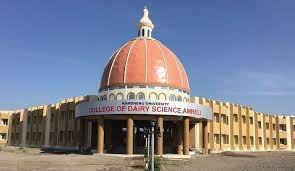
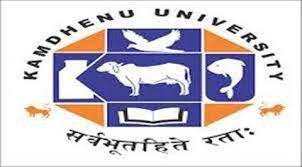

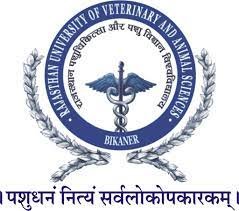

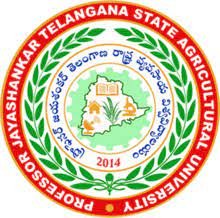

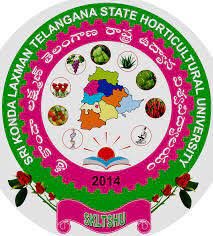

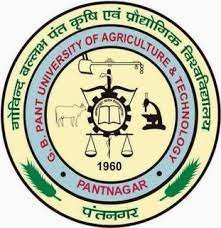
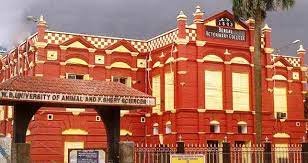


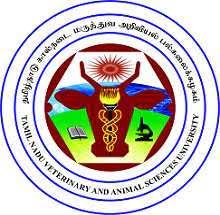

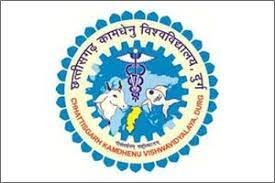



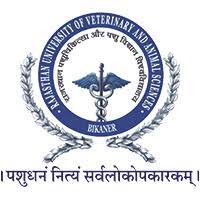

 back
back